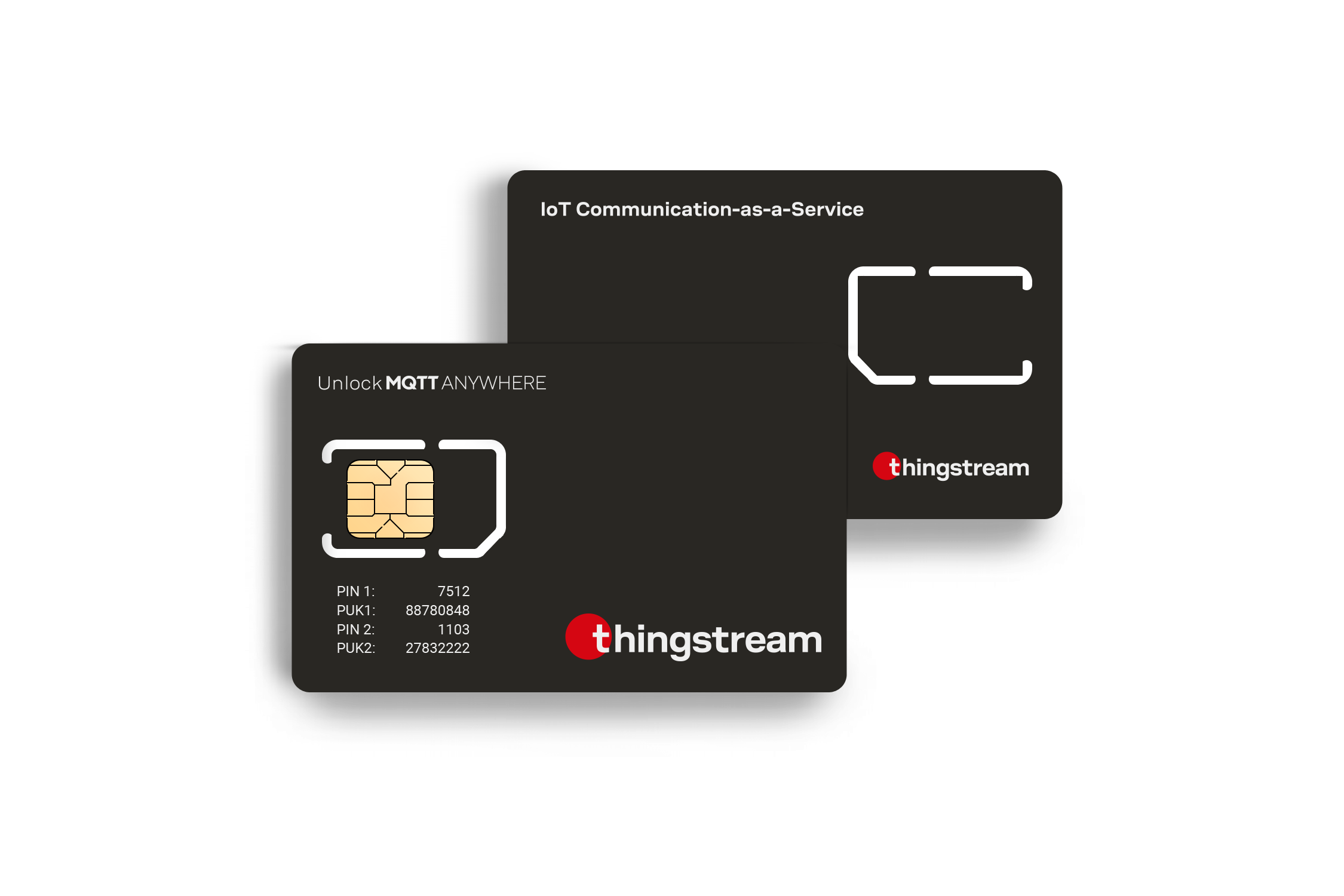How Iot Sim Card Works Freeway simHERO IoT Prepaid SIM

The integration of Internet of Things (IoT) technologies into varied sectors has reworked how units work together and talk. Central to this transformation is the position of SIM playing cards in IoT connectivity. These small, invaluable parts are crucial in facilitating secure communication between units and networks, enabling seamless information switch and distant administration.
First, understanding the standard function of SIM cards helps contextualize their significance in IoT. Originally developed for cellphones, SIM cards authenticate devices on a cellular network, providing a safe technique of identification verification. Beyond particular person customers, this functionality has expanded into the realm of IoT, the place countless devices now depend on this know-how to attach and talk (Iot Global Sim Card).
M2m Iot Sim Card Smart IoT SIM Cards
The diversity of devices using SIM cards in IoT is outstanding, ranging from smart meters and wearables to automotive techniques and industrial equipment. Each of those functions presents distinctive challenges and necessities for connectivity. The presence of a SIM card in each system ensures that these numerous components can operate effectively within a larger community infrastructure.

IoT functions typically require real-time knowledge exchange, making a dependable connection important. SIM cards allow units to attach on to cellular networks, providing not only flexibility but also mobility. This is particularly advantageous for functions that require gadgets to function in remote or challenging environments, where traditional wired connections may not be feasible.
Iot Sim Card South Africa Global IoT ecoSIM Card
Increased safety is one other important advantage offered by SIM cards. In a world increasingly fraught with cybersecurity threats, the flexibility to safe system communication via SIM-based authentication is invaluable. This means that data despatched and acquired is protected from unauthorized entry, making it more durable for cybercriminals to intercept sensitive data.
Moreover, the deployment of eSIM know-how has further enhanced the relevance of SIM cards in IoT connectivity. eSIMs, or embedded SIMs, permit for remote provisioning of cell network subscriptions. This offers immense flexibility, enabling easier administration and updates of system networks without the need to physically exchange SIM playing cards. This is especially beneficial for large-scale IoT deployments, where managing numerous units can be cumbersome.
The scalability provided by SIM playing cards is another factor that fuels their importance in IoT functions. As businesses increase their IoT ecosystems, the flexibility to attach extra devices quickly and efficiently can considerably enhance operational agility. SIM cards establish a standardized technique for connectivity that enables for more easy integration of new units into existing networks.
Furthermore, as extra industries embrace IoT technologies, the demand for dependable connectivity options continues to grow. SIM playing cards are now more and more engineered to fulfill the specific needs of assorted sectors. For instance, in the agricultural sector, devices geared up with SIM cards can provide real-time knowledge on soil situations and crop health, enabling farmers to make knowledgeable choices that improve yield.
Iot Sim Card Smart IoT SIM Cards
Additionally, the logistics business is witnessing a revolution pushed by IoT, with SIM playing cards taking half in a vital role in monitoring shipments and managing fleets. The capacity to observe vehicle performance and location in real time permits for more efficient routing and gasoline administration, which interprets into significant cost savings for businesses.
The evolution of IoT technologies also brings with it the necessity for future-proof options. The position of SIM playing cards will doubtless proceed to adapt, paving the finest way for enhanced performance and integration with upcoming technologies. As 5G networks roll out, SIM playing cards are set to supply even larger information switch charges and decrease latency, additional enhancing the capabilities of IoT gadgets.
M2m Iot Sim Card IoT SIM Card Global M2M Connectivity
One regarding aspect, however, is the potential for network fragmentation. With several cellular community operators (MNOs) deploying their proprietary solutions, ensuring common connectivity can turn into difficult. In this panorama, interoperability turns into important to make sure gadgets can communicate across totally different networks, regardless of the SIM card provider.
Transitioning to a next-generation IoT panorama involves considering the environmental impacts of numerous IoT units. As more units connect through SIM cards, manufacturers must give attention to energy efficiency and sustainable practices to read this article minimize the ecological footprint related to elevated connectivity. Employing energy-efficient technologies can mitigate the dangers of overwhelming power demands on our energy grids.
4g Iot Sim Card Reliable IoT SIM Cards Global Connectivity
The resilience supplied by SIM playing cards is a notable consider IoT deployments, notably relating to operational continuity. In the event of community disruptions or failures, gadgets can switch between obtainable networks to take care of connectivity. This functionality ensures that critical operations aren't halted, notably in sectors similar to healthcare and emergency services where communication is paramount.
The use of SIM playing cards in IoT connectivity also opens up vast opportunities for information analytics and insights. By amassing data from connected gadgets, organizations can harness real-time information for decision-making. This may vary from routine maintenance alerts to predictive evaluation that anticipates system failures, finally leading to enhanced operational efficiency.
As the digital panorama evolves, the regulatory environment surrounding IoT and SIM card usage will doubtless endure modifications as properly. Policymakers need to ensure that the fast innovation in IoT technologies continues to learn customers while also safeguarding towards potential abuses and vulnerabilities. Striking this stability calls for continuous dialogue between stakeholders, together with authorities agencies, cell network operators, and technology builders.
The way forward for IoT connectivity will undeniably hinge on continued enhancements in SIM card technology. As demand grows and new functions are developed, SIM cards will evolve to meet these wants efficiently. From increased security features to supporting rising technologies, their position will remain foundational to connecting a myriad of devices across a number of sectors.
Global Sim Card Iot IoT SIM Cards Explained Connectivity

In summary, the position of SIM cards in IoT connectivity is characterized by their capabilities to supply safe, versatile, and scalable solutions that facilitate communication across a spread of devices. As industries innovate and undertake IoT technologies, SIM playing cards will remain integral to making sure dependable and environment friendly connectivity. The continued evolution of this know-how will pave the greatest way for more advanced IoT purposes, reworking the panorama of interconnected devices. As we glance forward, the impact of SIM cards on IoT connectivity her comment is here will be pivotal in shaping the means forward for communication technology.
- SIM cards enable seamless safe connections between IoT units and cellular networks, ensuring reliable information transmission.
- They play an important function in system authentication, preventing unauthorized entry and maintaining information integrity across linked techniques.
- By supporting multiple network technologies (2G, 3G, 4G, and 5G), SIM playing cards offer flexibility in IoT deployments, catering to various utility needs.
- IoT SIM playing cards can be designed for specific geographical regions, optimizing connectivity and efficiency in several environments.
- Remote administration capabilities of SIM cards allow for over-the-air updates and diagnostics, enhancing operational effectivity.
- Many IoT SIM solutions help eSIM expertise, which allows for programmable connectivity, enabling gadgets to modify networks with out physical SIM alternative.
- SIM playing cards facilitate global attain by permitting devices to connect with a number of networks, essential for purposes like asset monitoring and fleet management.
- They enable cost-effective options for IoT by allowing subscription models tailor-made to data usage and operational necessities.
- Industry-specific SIM playing cards can offer additional features similar to enhanced safety protocols and higher performance in demanding situations.
- The integration of SIM cards in IoT units accelerates the adoption of smart technologies throughout varied sectors, driving innovation and efficiency.undefinedWhat is the role of SIM cards in IoT connectivity?undefinedSIM cards are important for IoT gadgets as they supply them with a novel identity on mobile networks, enabling secure communication and knowledge transmission. They ensure that units can connect to the internet, send and obtain data, and authenticate their presence within the network.
How do SIM cards support security in IoT devices?undefinedSIM playing cards improve safety by way of encryption and authentication mechanisms. They store unique identifiers and cryptographic keys, making certain that only licensed devices can hook up with the network, thus protecting sensitive data from unauthorized access.
copyright Iot Sim Card Multi-Network M2M SIM global Internet Things
Are there several sorts of SIM cards for IoT applications?undefinedYes, there are various forms of SIM cards for IoT, similar to M2M SIM, eSIM, and iSIM. M2M SIM playing cards are designed for machine-to-machine communication, whereas eSIMs and iSIMs offer more flexibility and distant provisioning capabilities that are perfect for large-scale IoT deployments.
Can IoT devices function without SIM cards?undefinedWhile some IoT devices can connect via Wi-Fi or other local networks, many require SIM cards to entry cellular networks, particularly in distant areas the place Wi-Fi is unreliable. SIM playing cards enable these gadgets to hold up connectivity with out counting on fixed infrastructure.
How does a SIM card impression the price of IoT connectivity?undefinedThe price of IoT connectivity is influenced by the kind of SIM card used, knowledge plans, and service suppliers. IoT solutions with SIM playing cards typically incur monthly fees for information usage. Choosing the best plan may help handle prices effectively.
What challenges are related to using SIM cards in IoT?undefinedChallenges include managing deployments at scale, ensuring secure information transmission, and handling SIM card logistics. Additionally, issues similar to connectivity drops and protection limitations can impact the efficiency of IoT applications.
Iot M2m Sim Card IoT SIM card IoT M2M eSIMs
How do I choose the best SIM card for my IoT project?undefinedSelecting the best SIM card includes evaluating the connectivity needs, data usage requirements, coverage space, and compatibility with the IoT gadget. Consulting with service suppliers can help in making an informed determination tailored to the specific utility.

What occurs if the SIM card in an IoT system fails?undefinedIf a SIM card fails, the IoT device will lose its ability to speak over the community. Recovery typically involves changing the SIM card or troubleshooting the system to revive connectivity, depending on the cause for the failure.
Can I remotely manage SIM cards in my IoT devices?undefinedYes, many service suppliers provide distant administration solutions for SIM playing cards, allowing users to observe efficiency, activate or deactivate SIMs, and manage knowledge plans efficiently across quite a few units in real-time.
copyright Iot Sim Card M2M IoT SIM Cards
How do eSIMs change the landscape of IoT connectivity?undefinedeSIMs allow for distant provisioning and administration, eliminating the necessity for physical SIM card swaps. This flexibility streamlines deployments, reduces logistics costs, and enhances the scalability of IoT options, making them extra adaptable to evolving wants (Cellular Iot Sim Card).